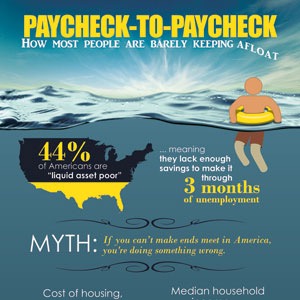🚣🚣🚣. PREPOSITION ….. UNDER ,, “under ” es 🔹debajo de algo físicamente ,,, ✔️under the table ,,,,,, 🔹bajo la autoridad , la influencia ,,, ✔️under the power of Henry VIII,,, 🔹bajo el poder de Enrique octavo ,,,,,, y ,,,🔹según ,de acuerdo con ( ojo con esta acepción ) ,,,,,,, ✔️under the law ,,,,,según la ley ,,,,,, ✔️under the new license ,,,, de acuerdo con la nueva licencia
🚣🚣🚣.TRICKY EXPRESSIONS ↗️MANY TIMES OVER ,,,,, Una y otra vez , repetidamente. ,,, we can say ,, 🔹again and again ,,, , but the sense of 📍elapsed time in ‘many times over’ is more precise . 📍elapsed time,,,,, paso del tiempo ↗️NO WONDER ,,,,, significa ,,,, con razón ,,,,, veamos ,,,, con razón tu padre te llamaba roba peras ,,,,,, ➡️➡️no wonder your father named you a pilferer 🔹Pilferer ,,,es más ajustado a robaperas que el conocido 🔹pickpocket , éste es ,,, carterista ↗️THE LIKES OF ,,,,, significa ,,,, tales como , ,,,del tipo de ,,,, ↗️ALL-ROUND ,,,,, en todos los aspectos , completamente , ,,,, completo ( en calidad ) en algún aspecto o competencia ➡️➡️Jugadores del tipo de Rafael Nadal o Djokovich son número uno repetidamente porque son jugadores completos ,,,,,,, Tennis players the like of Rafael Nadal , Djokovich, are number one many times over because they are all-round players .
🚣🚣🚣.TRICKY WORDS
↗️MOMENTOUS,,,,, no es momentáneo,ni momento,,,,,,,sino ,,muy importante.
↗️LAGER ,,,,, cerveza rubia ,,,,NO se pronuncia “leicher” sino ” laagar”. La cerveza fuerte se dice además del general ↗️BEER ,,, ,,, ↗️ALE

↗️JAYWALK ,,,,,, 🔹jay ,,es ,,,, arrendajo ,,,,, pero ,, 🔹jaywalk ,, es cruzar la calle en rojo o sin mirar

↗️WILLPOWER ……. Fuerza de voluntad.

↗️LISTLESS,,,,,,, no es poco listo o sin una lista ,,, jeje, ,,,,sino ,,,🔹apático

🚣🚣🚣.IDIOM ↗️.OUT WITH THE OLD , IN WITH THE NEW,,, podría traducirse como el muerto al hoyo y el vivo al bollo, o ,,,,,fuera lo viejo , bienvenido lo nuevo. ↗️.IT MAKES NO ODDS ,,,,,,, es el equivalente al ” da lo mismo “español con el matiz de que algo que no cambia la situación .
PODCAST , BBC4 , thought of the day http://downloads.bbc.co.uk/podcasts/radio4/thought/thought_20150130-1140a.mp3 This week the Scottish government announced that it’s scrapping plans for a new women’s jail in favour of small, regional units. Most women prisoners aren’t violent; and, like their male counterparts, most have mental health or addiction problems. That’s just one of the difficulties facing the criminal justice system. Statistics show that around half the men who leave prison, having received little help during their sentences, are reconvicted within a year. So there’s a strong case for reviewing what it’s trying to achieve. I’ve been getting to know this world through a project with the National Offender Management Service to develop mindfulness training for offenders. It’s early days for this work in Britain, but in America it’s a substantial movement. We begin with simple mindfulness and meditation practices because having ways to focus and settle the mind helps participants manage the stress of being in prison or on probation. It also helps them let go of the thoughts that accompany some forms of mental illness. But there’s a moral dimension as well. I wouldn’t argue against the traditional criminal justice aims of punishment, deterrence and public protection. But if we also value rehabilitation and reducing re-offending, we need to consider how people change for the better. The Buddhist teaching of karma tells us that our actions stem from our character and that grows from what we do and how we think. Through mindfulness, people learn to see the old, defensive patterns that may have led to their offence. They also see the suffering this prompts, and that opens a door to responsibility and even caring for others. For me, this is the essential Buddhist approach, applied in a universal and secular way. Meditation alone isn’t enough, so we’re integrating mindfulness with how prison and probation officers work with offenders. The best American projects also integrate restorative justice, where offenders communicate with victims, and transformative justice, where they contribute positively to the world. When I work intensively with groups of serious offenders, I quickly stop seeing them as ‘criminals’, even when they’ve done very bad things. They’re just people who are struggling and may have destructive ways of coping. That’s the start of a compassionate connection. It’s tough work, but it’s humbling when, despite everything, someone makes a big change, letting go of ingrained patterns. Whatever the value of punishment, healing the harm an offence represents requires our compassion – for offenders, victims, guards, everyone. And faith: faith that, in general, whatever they’ve done, with help and encouragement, people have the capacity to change.









